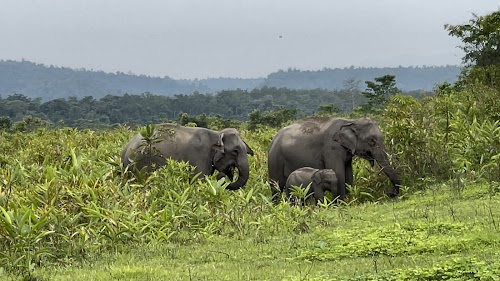
Nameri National Park And Forest Reserve
Tezpur, India
- Angling with permission in Jia-Bhoroli river.
- Bird watching tour with expert guide.
- Camping in designated areas with permits.
- Jungle safari for wildlife viewing.
- River rafting in Jia-Bhoroli river.
- Trekking through designated forest trails.
Known for:
Description:
Nameri National Park, nestled in the foothills of the Eastern Himalayas in Assam, India, is a haven for nature enthusiasts and wildlife lovers. Spanning across 200 sq km, it's renowned for its rich biodiversity, particularly its population of elephants, tigers, leopards, gaurs, and numerous species of birds. The Jia-Bhoroli River flows through the park, offering opportunities for angling and river rafting. The park's landscape is a mix of semi-evergreen, moist deciduous forests, and grasslands, creating a picturesque setting for exploration. Nameri is also a birdwatcher's paradise, home to the endangered White-winged Wood Duck and other rare avian species. It is a perfect destination for those seeking a tranquil escape into the wilderness and an opportunity to connect with nature.
History:
Declared a National Park in 1998, Nameri's history is intertwined with the conservation efforts in the region. Before its official recognition, the area was a part of the Balipara Reserve Forest. The establishment of Nameri aimed to protect the diverse flora and fauna of the region, particularly the endangered White-winged Wood Duck. Over the years, the park has faced challenges like poaching and deforestation, but continuous efforts by the forest department and local communities have helped in preserving its natural beauty. The park's history reflects a commitment to conservation and sustainable tourism, ensuring that future generations can appreciate its unique ecosystem.